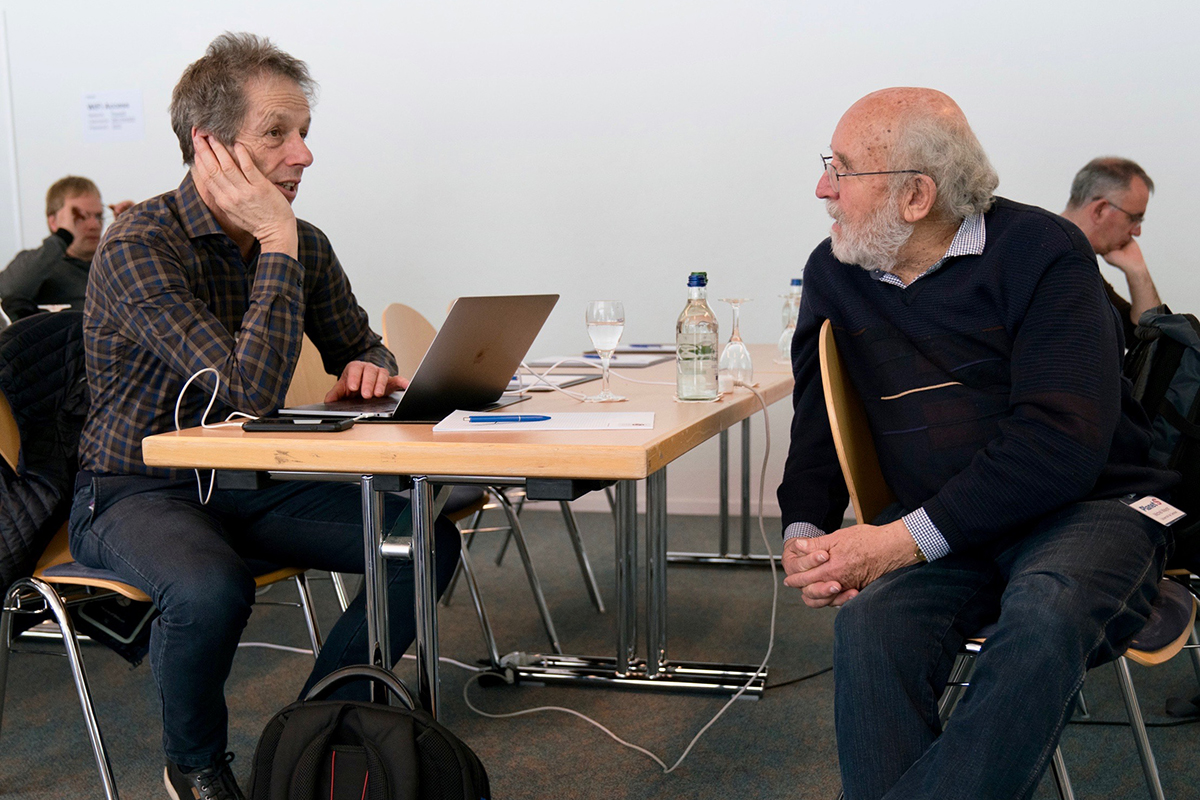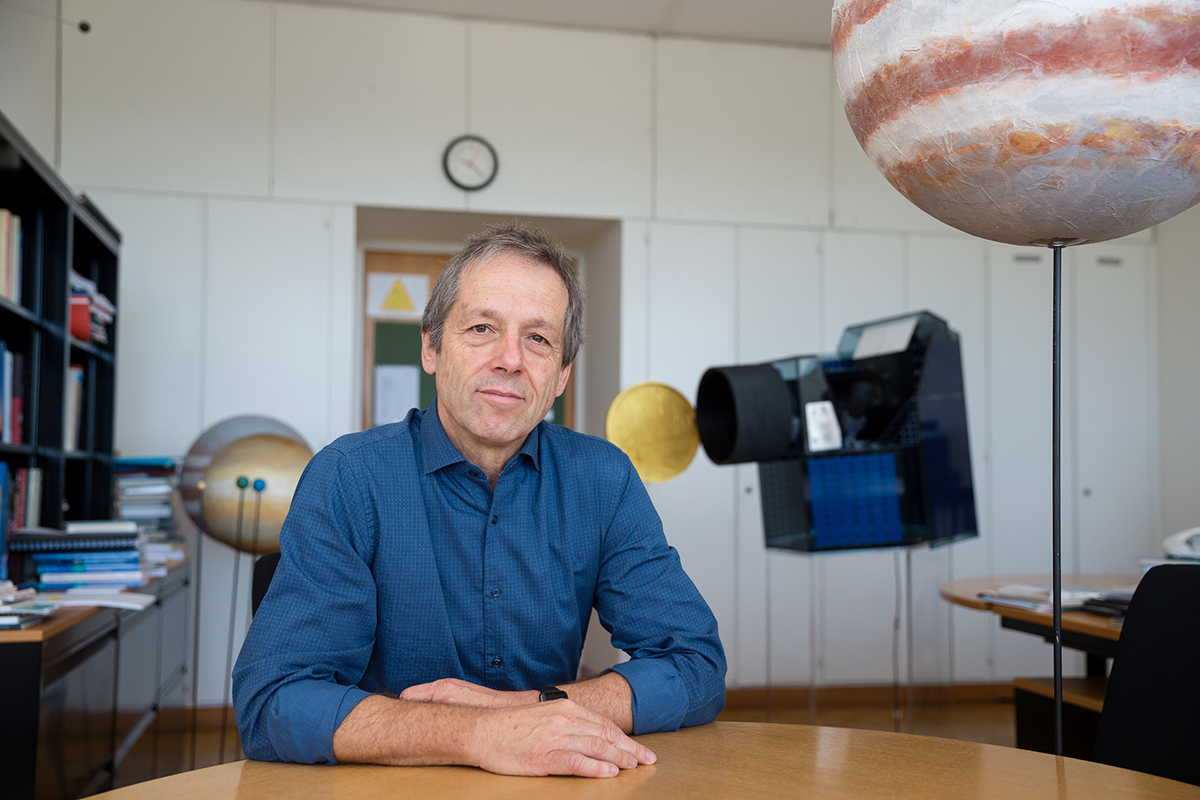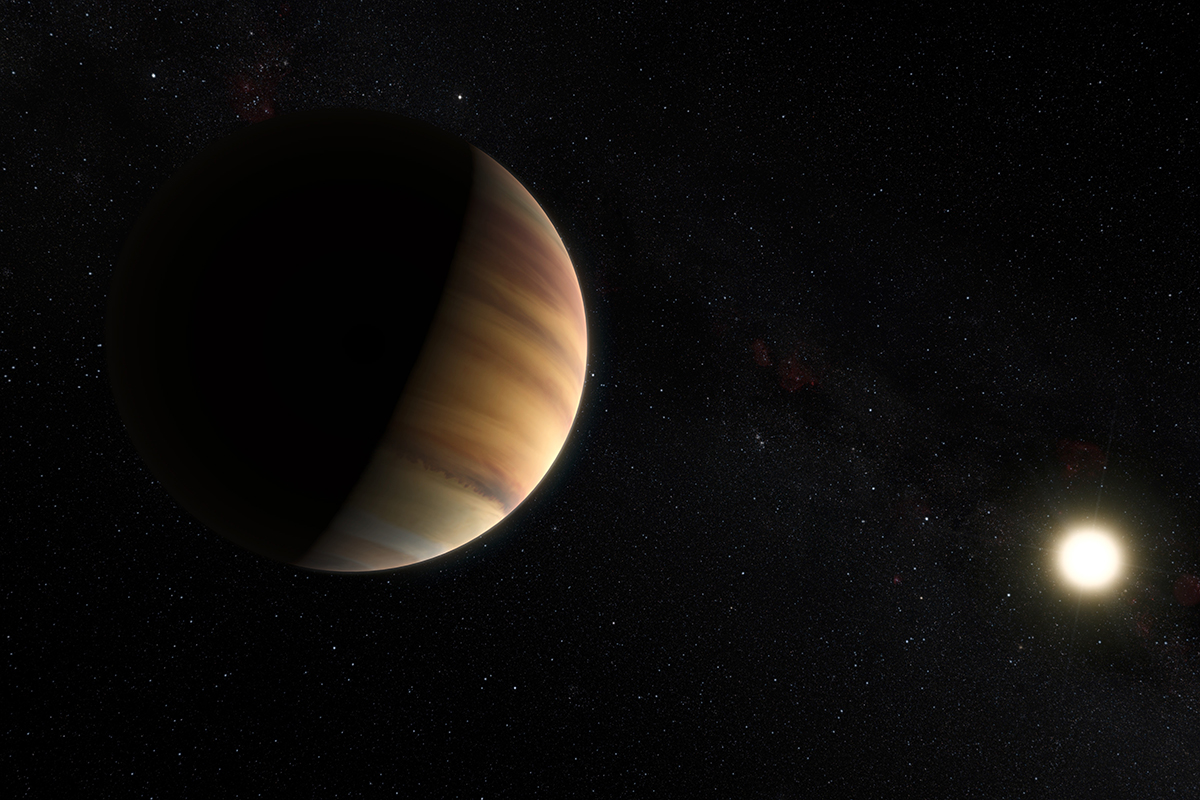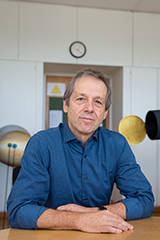"They both live on another planet now."
Willy Benz is particularly pleased about this year's Nobel Prize in Physics for the Swiss astronomers Michel Mayor and Didier Queloz. He was Michel Mayor's first PhD student at the University of Geneva. Today he is Professor at the University of Bern, Director of the National Centre of Competence in Research (NCCR) PlanetS and President of the Council of the European Southern Observatory ESO.

PlanetS: How did you find out that your colleagues and friends Michel Mayor and Didier Queloz were honoured with the Nobel Prize?
Willy Benz: I was at a meeting of the ESO Council near Munich and completely surprised when the German Council delegate spread the news. Michel Mayor and Didier Queloz had been on the list of Nobel Prize candidates for years, but I had lost some hope that it would ever work. This year I even forgot the date when the winners were announced. Of course, it was a wonderful surprise and as the president of Council, I made a short statement about the discovery and to the fact that Michel Mayor had been for many years the Swiss scientific delegate to the Council. Later, at dinner time, we toasted to the Nobel Laureates.
Both Nobel Laureates are associated with ESO. And there is also a collaboration between the Universities of Geneva and Bern.
Michel Mayor has built instruments for ESO. The most famous of these is HARPS, a high-precision spectrograph that has been in operation in La Silla in Chile since 2003. The University of Bern was also involved in the construction of HARPS. We manufactured a part of the optics here in Berne. This was the first collaboration in that field between the Universities of Geneva and Bern. Other instruments and an NCCR followed.

As a PhD student of Michel Mayor you worked with his first two instruments in Southern France and Chile. How did you experience your supervisor at that time?
He was a great teacher andf I was really looking up to him. From him I learned how research is being done. He never used me as a servant to do the things he did not like to do, there was really a team spirit and he gave me a lot of freedom. Later, I tried to act the same way with my own PhD students. Michel Mayor is an outstanding physicist and, thanks to his experience, was always able to help me, even if it wasn't his area of expertise. He was stubborn in quality control, but an extraordinarily open and friendly person.
You have also done a lot together in your leisure time. Do you remember a special experience?
We were often in South America for our observations. Once we spent a few weeks vacationing in Peru together with our wives. On the way to Machu Picchu we camped and cooked soup at the campfire in the evening. But the weather was so bad that we arrived completely soaked and frozen. The only dry garment Michel still had was his pyjamas and so he travelled back to Cusco wearing his pyjamas in the train. Unfortunately, I could not find a picture..
In 1995 you had a professorship at the University of Arizona in the USA, but you came to visit the University of Geneva in the summer. Did you find out about the discovery of the first exoplanet around a solar-type star before the official announcement?
Michel Mayor asked me into his office, showed me a diagram and said: "For me this is a planet. What do you think?" My immediate answer was: "No, never." A planet half the size of Jupiter just couldn't be so close to its star that it orbited it in just four days. It would be much too hot there. I offered Michel to ask a colleague in Arizona who could calculate the stability of such celestial bodies. "Ask, but don't say anything," Michel said. The calculations showed that, contrary to my expectations, such a planet could survive so close to the star. But the colleague had become suspicious, and when he learned that the Geneva astronomers wanted to make a statement at a conference in Florence, he knew that something important was about to happen.

What do you think is the secret of success for the Nobel Prize?
You might think it's just luck: you take a telescope, look at a star and the discovery is made. In this case, it was just the opposite, not a coincidence at all. Over the years, with great persistence and care, Michel Mayor developed a measuring technique to determine the motion of stars. With his first instrument, CORAVEL with which I worked, the measuring precision was a few kilometres per second. The instrument ELODIE, which found the exoplanet 51 Pegb in 1995, had an accuracy of 10 meters per second, HARPS brought this to 1 meter per second, and the latest instrument in the family ESPRESSO at the VLT in Chile today brings it to 10 centimeters per second.
Like you, Didier Queloz was Michel Mayor's PhD student a few years later. What was his task?
The team at the time was very small and so Didier was doing a lot of things but in particular, his tasks was to develop the proper software to drive the ELODIE instrument and record its measurements. Of course, he also did measurements with it at the Observatory of Haute- Provence in the South of France. In contrast to the American competitors, the Swiss were given a first evaluation of the star’s velocity immediately after each measurement. When they saw a star whose velocity changed from one night to the next, it was clear that something was going on and they continued to observe the star. Also later Didier, as a top scientist, has remained actively involved in developing instruments to study exoplanets.
What does this Nobel Prize mean for the NCCR PlanetS?
It is a recognition of the relevance of the research area. This means that exoplanet research has finally been stamped "important". The impact of the discovery by Michel Mayor and Didier Queloz was enormous. Instruments, telescopes, research teams and entire centres with planetary research as their scientific theme were established all over the world. PlanetS would not exist without this discovery. Michel Mayor is a member of our advisory board, Didier Queloz is chairman of the scientific team of the CHEOPS mission. Their Nobel Prize strengthens our position. The international standing of Swiss planetologists will certainly increase even more now. The award also proves that in Switzerland our education system works well. The two laureates are Swiss, have attended school and studied here and didn't have to go abroad to do their research, because the funding of science here also allows developments that require years to come to fruition.
Will anything change for Michel Mayor and Didier Queloz?
They both live on another planet now. They are now playing in the Champions League and will be quite busy with media enquiries for a while. The only thing that makes me a little nervous is the question whether Didier Queloz will still have enough time to take care of CHEOPS, we really need him!
About the person

Willy Benz studied physics at the University of Neuchâtel and received his doctorate in natural sciences from the University of Geneva in 1984 for his doctoral thesis in astrophysics. He then completed postdoctoral training at Los Alamos National Laboratory (USA) and Harvard University and was appointed assistant professor by Harvard University in 1987. In the following years he taught at the University of Arizona (USA) and at the University of Geneva. Willy Benz has been Professor at the University of Bern since 1997 and was also Director of the Institute of Physics. Since the mid-1980s, Willy Benz has focused his research on planets inside and outside the solar system. He is Director of the National Centre of Competence in Research (NCCR) PlanetS at the University of Berne, Chief Officer of the CHEOPS mission and President of the ESO Council, the governing body of the European Southern Observatory (ESO).
About the author
Barbara Vonarburg is a scientific journalist and works for the National Centre of Competence in Research PlanetS.